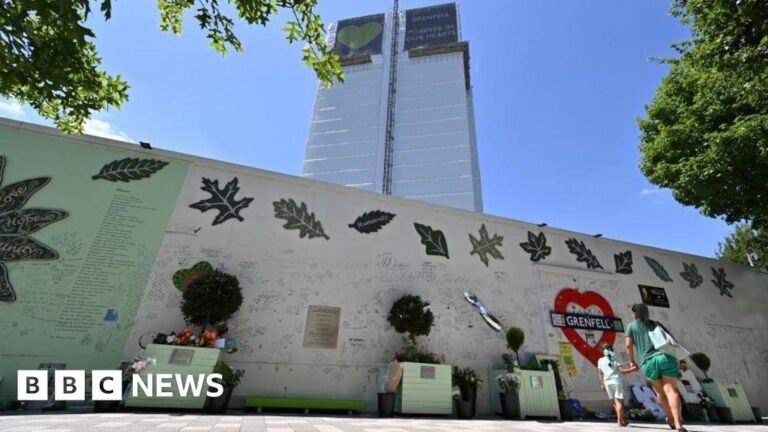Grenfell Tower Dismantling Sparks Anger Among Families
The tragic events of the Grenfell Tower fire on June 14, 2017, remain etched in the memories of many across the UK. The fire claimed 72 lives and signified a critical failure in fire safety regulations and building standards. Now, as plans are put into motion to dismantle the infamous tower, families affected by the tragedy are reacting with anger and disappointment.

The decision to demolish Grenfell Tower comes in response to extensive community discourse on the future of the site. While some see dismantling the structure as a necessary move toward healing and a symbol of a new beginning, the families who lost loved ones view the action as a disregarding of memory and justice. To many, the tower should stand as a constant reminder of the mistakes made that fateful night—mistakes that led to catastrophic loss.
A recent survey indicated that over 70% of survivors and bereaved families believe that the tower should not be demolished. Thirty-six percent of those surveyed were vocally against the decision. They argue that tearing down the building may erase the memory of those lost and the need for continued advocacy for fire safety reforms. In many ways, demolition feels like a cover-up of the systemic negligence that allowed such a tragedy to occur.

Statistics surrounding the Grenfell Tower fire illuminate the disaster’s severity. Over 200 firefighters and 45 fire engines battled the blaze that night, marking one of the largest firefighting operations in London’s history. The aftermath led to investigations that uncovered inadequate fire safety measures, including flammable cladding and a lack of adequate emergency response procedures. These findings caused public outrage and prompted calls for immediate reforms to improve fire safety regulations across all residential buildings in the UK.
Additionally, the Grenfell Inquiry, which was launched to examine the circumstances surrounding the fire, has revealed harrowing insights about the conditions faced by residents. As of October 2023, over 600 witnesses have testified, and hundreds of documents have been scrutinized, showcasing a culture of neglect surrounding social housing legislation. The inquiry aims to ensure similar incidents do not occur in the future.

The planned dismantling of Grenfell Tower is complicated by numerous protests from family members and various community groups. Many believe that the tower’s presence can still play a significant role in raising awareness and advocating for justice for those who suffered. Critics also argue that the timing of the demolition could appear to many as an attempt to rush this issue under the rug instead of allowing thorough reflection.
Furthermore, the controversy surrounding Grenfell Tower has engendered broader socio-political discussions about housing inequality in the UK. The fire served as a stark reminder of the neglected conditions many families endure in high-rise social housing units, which often lack necessary safety features. According to recent statistics from the National Housing Federation, over 1.2 million people are on waiting lists for social housing in England alone, which exacerbates existing inequalities in urban settings.
As families express their anger regarding the decision to dismantle Grenfell Tower, it becomes evident that healing from such a substantial loss requires more than just physical changes to the landscape. Emotional scars remain deep, and for many, the dismantling of the structure symbolizes an ongoing battle for memory, dignity, and flawless accountability.
As this controversial dismantling unfolds, it is crucial that the voices of the bereaved and survivors are prioritized. Ongoing advocacy for legislative change in fire safety and housing standards remains essential to ensure the Grenfell tragedy is never repeated. The call for social justice and awareness surrounding fire safety must carry on even as the physical symbol of that night disappears from the London skyline.
For the loved ones of Grenfell Tower victims, the road to recovery will remain intertwined with the need for transparency, justice, and lasting reforms. While houses may be rebuilt and the tower dismantled, the memories and lessons from that fateful night must endure—serving as a testament to the lives lived and lost.


